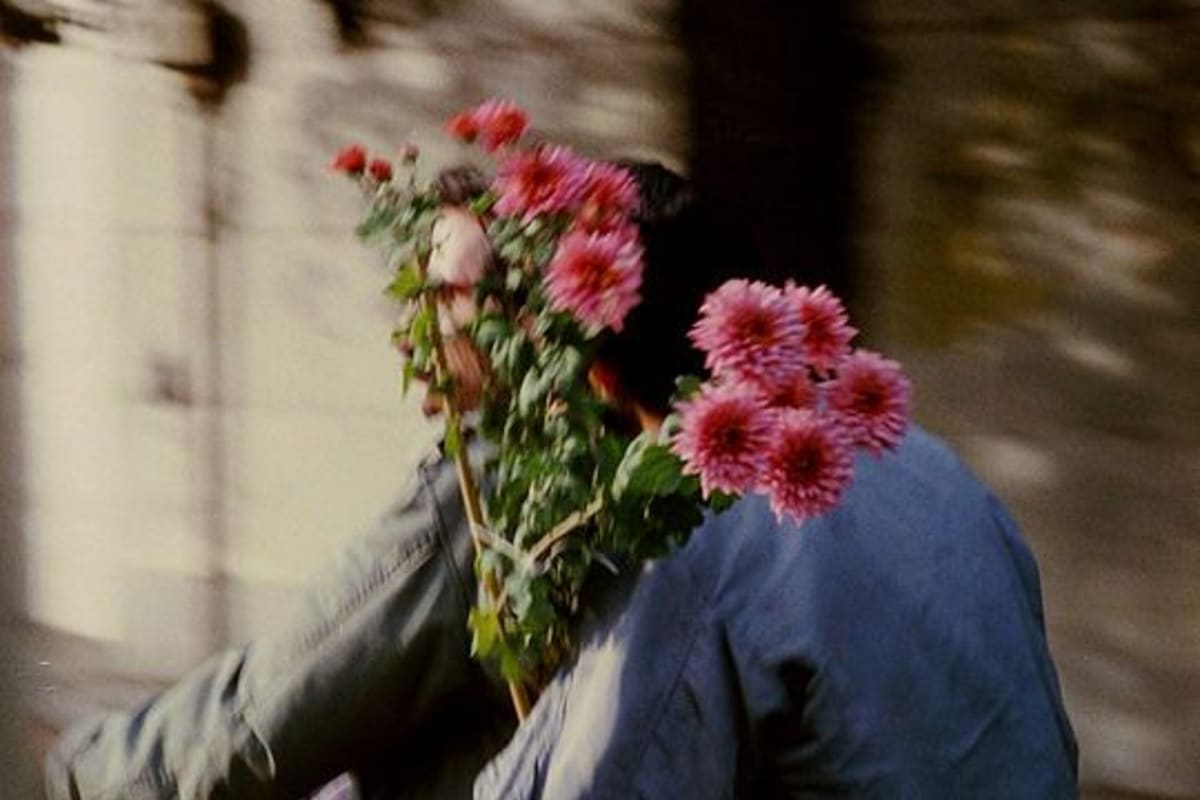After the EndSARS protest of 2020 and its bloody culmination, the prospects of a future in Nigeria, already a hard sell to many, lost shine. In response, nearly 3.6 million Nigerians packed their bags, said farewell to family, and sought new pastures in lands far away.
Ask a group of Nigerians what the Nigerian dream is and hear them struggle to find common ground. The most likely answers: striking gold through government patronage, enjoying the spoils of political office, or escaping abroad with little intention of returning — what’s now popularly known as japa.
Japa is one of those words—like oga, odogwu, wahala—that have spilled over from traditional languages into mainstream usage. Japa means escaping (a potentially dangerous situation). To ja is to dart, dash, or break loose; pa is an intensifier indicating force.
The more colloquial usage of the word is attributed to young Nigerians but was popularised by a controversial Nigerian musician. In his 2018 release under the same name, Naira Marley sings about being on the run from police for refusing to pay some fee—a bribe or fine. I’m on the run o catch me if you can. Japa japa, mo japa lo London, he sings.
After the savage halting of the protests in 2020, there was a quiet agreement that Nigeria had become a situation from which one needed to japa. Thenceforth, emigration announcements became trendy on social media and less fortunate Nigerians, those held back by financial constraints, turned to God with these posts as prayer points.
Though the rechristening may suggest novelty, japa is a mainstay in Nigerian culture and social conversation. Older Nigerians speak fondly of the good old days but there hasn’t really been a time when Nigerians didn’t look to the west as the benchmark for success.
In those early post-independence days, army officers who trained at foreign colleges like Sandhurst, Camberley, and Dehradun were lauded as the elite of their battalions. This points to a veneration of foreignness that already existed in parts of Nigerian society even before cell phones were a thing.
In 1966, Nigeria’s first coup happened, and that marked the start of a sharp descent into a perilous era of successive power grabs and restrictive military regimes that forced many Nigerians to japa for safety reasons.
The 1970s and 80s, a period of political violence and economic hardship in Nigeria coincided with rapid globalisation and oil-driven development in countries across Europe and the middle east. In the United Kingdom, a growing demand for healthcare workers opened up a migration route for Nigerians. In the Gulf states, worker shortages threatened the development of their booming cities, and so to fix this, they recruited millions of skilled Africans to take up these roles.
Many Nigerians took these opportunities to escape the harsh realities. Those blocked by financial lack sought alternatives. The addition of desperation to an already fatal combination of poverty and unemployment created the perfect playing ground for aspirational marketers to exploit. All of a sudden, immigration became a bend-down-select display where there was something for every pocket or body size.
Signboards, posters, and newspaper ads promoted sketchy visa lotteries and opportunities to live and work in “Europe” at prices that enticed Nigerians of all strata. The rise of new-age pentecostalism and its prosperity gospel further strengthened the average Nigerian’s belief in rags-to-riches transformations, the main driver of this hunger for migration in the first place.
Thanks to these travel agents, many Nigerians became convinced that opportunity was abundant in Europe, not just the United States or United Kingdom as was widely believed. Slowly, dreams of entering the USA or UK were replaced by dreams of going to Europe, which at the time could have been anywhere from Libya to Morocco or Oman. Many of these relocations facilitated by dubious travel agents, often rendered their victims illegal immigrants struggling to settle down into life abroad. Thanks again to them, long, arduous journeys through deserts and across the Atlantic became something that Nigerians worked towards.
This era was characterized by a display of incredible audacity. Many Nigerians, armed only with sheer willpower and enough audacity to make up for their deficiencies in finance, education and exposure, clung to the rudders of ships and tucked into airplane tyre compartments to reach to their dreams. In one highly publicised case in 2013, 13-year-old Daniel Oikhena was found in the tyre compartment of an airplane that landed at the Murtala Muhammed International Airport. He had hidden there while the plane was still grounded in Benin thinking it was headed for London. When asked why he would undertake such a risk, the teenager said he felt compelled to lift his family out of poverty.
At the peak of the abroad craze, a subplot that mirrored it unfolded in rural communities, as lower class Nigerians pursued similarly charged relocations to more urban communities.
The outlook was similar: family members pooled resources to help one person move to “the city” and settle down. Since urban areas held more economic potential, the idea was for this person to make money, send some back home, before ultimately achieving enough comfort to bring his whole family to join him, or make enough money to build a house back home and return to the village a wealthy man. These tropes proliferated in Nigerian society that the saying ‘do you think money grows on trees in Lagos/Europe?’ was coined in response.
Nollywood, forever the perfect mirror into any period of Nigerian society, documented this craze from different angles. In films like Living in Bondage (1992) and Glamour Girls (1994 & 2002), we see protagonists from humble village backgrounds who moved to the city for greener pastures get ensnared by the seduction of Nollywood’s biggest sins: Money rituals and runs — a blanket term for sex work and other unorthodox hustles. This leans on the pervasive idea of economic prosperity being so rampant and easily attainable in the city that there had to be a larger-than-life explanation for it. Of course, the protagonists of these films would end up suffering grave consequences for their crimes.
In Jenifa (2008), Muniru ati Ambali (2014), Nollywood leaned more into exaggerated comic relief in stories about brash villagers making their way through the urban settings of Lagos.
In the music of the early 2000s, you find stories of the struggle faced by ordinary Nigerians, together with scathing critiques of the political class.
In 2003, Nigerian rapper Bembe Aladisa, dropped ewafun mi ni visa, an evocative song in which he lamented the hardships of life as a Nigerian and begged the oyinbos to give him a visa so that he could escape.
Ilu yi ti sumi (I’m tired of this land)
E wa fun mi ni visa (come and give me a visa)
Ebi yi poju (this hunger is too much)
E wa fun mi ni visa (come and give me a visa)
E si future (there’s no future here)
E wa fun mi ni visa (come and give me a visa)
E si security (there’s no security)
E wa fun mi ni visa (come and give me a visa)
Kin ma ku o (such that I don’t die)
E wa fun mi ni visa (come and give me a visa)
The year after, Eedris Abdulkareem dropped one of the most socially-charged Nigerian songs of all time. On jaga jaga, Eedris tackled everything from poverty, to insecurity, unlawful detention of activists and journalists, excessive importation, unstable power, fuel scarcity, and the corruption of politicians.
The society described by Eedris and Bembe Aladisa was one that offered little respite to the poor.
A period of steady economic prosperity under President Olusegun Obasanjo facilitated the upward mobility of many families into the middle class. This widening of the middle class coincided in part with the proliferation of the internet and establishment of new universities to satisfy a growing interest in higher education.
These socioeconomic advancements exposed Nigerians to a more realistic worldview where success could be envisioned outside of death-trap-laden trips to backwater countries. The establishment of universities accelerated the transformation of formerly rural communities into urban or semi-urban ones, dampening the allure of big cities.
Increased university education spurred greater enrollment into the NYSC program designed by Gowon to promote reconciliation and pan-Nigerianness after the civil war. NYSC deployed fresh graduates to towns and cities all around the country, giving the previously untravelled a glimpse into life and opportunities outside their place of birth and upbringing. This played a role in facilitating seamless intra-Nigerian migration and demystifying previously heralded utopias.
Awareness about legal immigration paths grew, and what once required desperation and sheer guts became attainable through academic or professional excellence, hard work, luck, some millions of naira, or any combination of them.
Over time, foreign lands moved from being seen as prerequisites for success and economic stability to being regarded as holiday destinations, backup plans, or safety nets. Although the longing remained, it wasn’t the kind that made people put life on hold, dedicating everything to making it happen. Instead, it was the kind of intermittent longing that flirted with your mind when the zeroes in your bank account could afford sweeter comforts than those Nigeria had to offer.
This period was cut short by successive runs of bad leadership and poor economic choices. Before long, the middle class was shrinking faster than it grew. Recurring problems with electoral malpractice and violence, together with a sustained crisis of police brutality, resurrected the old desperation of the 90s and early 2000s. Once again, Nigerians worked solely to afford getting out tickets.
Like the old days, this period was marked by the emergence of previously uncharted destinations as hotbeds for Nigerian migrants and the reemergence of travel agents with refurbished scams.
In spite of this, Nigerians kept hope alive. In one final demonstration of fight and collective optimism, they took to the streets. The request was for better policing, but that was merely the straw that broke the camel’s back. The real plea was for their country and for a future that didn’t seem like a catastrophe. But then soldiers struck.
This typically Nigerian response resulted in the murder or injury of at least 12 unarmed protesters. For the first time in their brief lives, young Nigerians confronted the heavy hand that beat their predecessors into perpetual passivity.
Defeatism quickly spread through the ranks of a protest that had been defined in its earlier days by hope and patriotism. To make matters worse, the Lagos state government orchestrated a coverup, shielding the perpetrators from the consequences of their actions.
#EndSARS confirmed the pervasive notion that Nigeria’s ruling class was determined to hold onto power by any means, and that every resistance will be treated as an affront and dealt with severely.
It felt like a return to the pre-democracy days, when Nigerians lived under the heavy hands of despotic strongmen. In those days, Nigerians had the return of democracy to look forward to. Today, there are no such luxuries, so in the now-famous words of said musician, japa japa.


